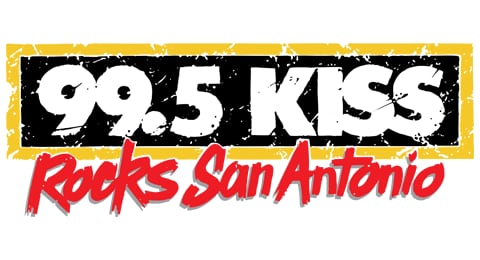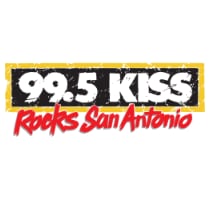Shoppers at Kroger, one of the nation’s largest grocery chains, have been unknowingly paying full price at checkout for items -- including meat, vegetables, juice, rice and alcohol -- that were advertised as discounted or on sale, according to a published report.
Consumer Reports, in collaboration with The Guardian and the Food & Environment Reporting Network (FERN), reported that Kroger stores had widespread pricing errors.
The supermarket chain, which has 1,241 stores in 16 states, has also been the target of multiple class-action lawsuits in California, Illinois, Ohio, and Utah. The lawsuits have also cited high rates of price tag errors for Kroger, according to the report.
Consumer Reports said it began checking grocery prices after learning that Kroger workers in Colorado -- who are currently in labor union negotiations with the company -- were alleging widespread errors on price labels.
The consumer advocacy nonprofit said it recruited people to shop at 26 Kroger and Kroger-owned stores over the past three months. That included Kroger, Harris Teeter, Fred Meyer, Fry’s, and Ralphs stores in 14 states and the District of Columbia.
“We found expired sale tags on more than 150 different grocery items that actually led to overcharges at the checkout counter, everything from beef, salmon, coffee, juice, vegetables, even cough medicine and dog food,” Consumer Reports reporter Derek Kravitz said.
Shoppers discovered expired sales labels that led to overcharges on more than 150 grocery items, including Cheerios cereal, Mucinex cold and flu medication, Nescafé instant coffee, boneless beef, salmon, and dog food, according to Consumer Reports.
Kroger stores in multiple states, the investigation has revealed, show a pattern of overcharging customers by frequently listing expired sale prices on the shelves and then ringing up the regular prices at checkout. (via @guardiannews) https://t.co/dcYNkrdDT1
— Consumer Reports (@ConsumerReports) May 14, 2025
A third of the expired sales tags were out of date by at least 10 days, and the prices of five of the products were expired by at least 90 days. The average overcharge we found was $1.70 per item, or 18.4%.
A Kroger company representative said in a statement that it is “committed to affordable and accurate pricing” and that it regularly conducts price checks that review “millions of items weekly to ensure our shelf prices are accurate.”
Kroger said the sales price tag errors cited by Consumer Reports were but a “few dozen examples across several years out of billions of customer transactions annually.”
“While any error is unacceptable, the characterization of widespread pricing concerns is patently false,” the company told Consumer Reports.
Kroger employees told the magazine that the reason for the pricing errors is a lack of employees. After years of staff cuts, there are not enough workers to manually change price labels on shelves. Consumer Reports noted that some stores have “tens of thousands” of price tags hanging at a given time.
“It really makes me feel bad because some of (the customers) are on fixed incomes and they’re older. They’re not going to pay attention,” Joy Alexander, a Kroger employee who has worked at a King Soopers store in suburban Denver for 18 years, told Consumer Reports. “They think that when they took it off the shelf, it was $2.50. They don’t know that they’re paying $3.75 for that one item.”
When the job of updating sales tags doesn’t get done, consumers are “kinda left in the dark,” Alexander said. “You don’t know what you’re paying for.”
As part of the investigation, Consumer Reports said it found shoppers were overcharged on average $1.70 per sales item, or 18.4% more.
The report, citing data from the Occupational Safety and Health Administration, said that Kroger has “significantly cut” the number of workers and the hours full- and part-time employees work each week.
In the Kroger-owned stores where Consumer Reports found significant price tag errors, the average number of employees between 2019 and 2024 was reduced by 10.3%. The average number of hours worked decreased by 9.9%.
In stores where there were fewer or no price tag errors, the average number of employees fell by 6.2% and hours worked dropped by 9.3%.
A Kroger company representative disputed that labor hours have been reduced. The company added in a statement that it “intentionally staff(s) our stores to keep them running smoothly while creating an enjoyable place to shop.
“Our staffing decisions are data-driven to balance workload and schedules,” the company said in its statement.
In a statement, Kroger said its “Make It Right” policy “addresses any situation when we unintentionally fall short of a customer’s expectations.”
The “Make It Right” policy allows employees to fix price discrepancies on the spot, on a case-by-case basis.
According to complaints Consumer Reports reviewed and shoppers who were interviewed, Kroger employees work quickly to correct pricing errors when they are pointed out.
In a statement to LiveNow from Fox, a Kroger spokesperson called the allegations “misinformation.”
“The Consumer Reports allegations boil down to misinformation, reviewing a handful of discrete issues from billions of daily transactions,” the statement said. “It in no way reflects the seriousness with which we take our transparent and affordable pricing.”
© 2025 Cox Media Group









